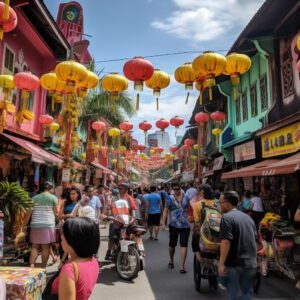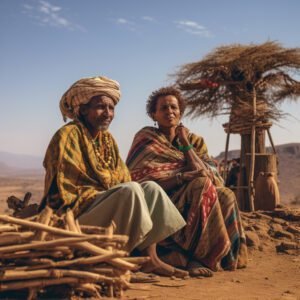
The Rules in Bangladesh: A Guide to Understanding Cultural Norms
Introduction
Traveling to a new country can be an exciting and eye-opening experience. It allows us to immerse ourselves in different cultures, learn about unique traditions, and interact with locals. However, it is essential to respect and abide by the rules and cultural norms of the country we are visiting. This not only ensures a smooth and enjoyable trip but also promotes understanding and appreciation of the local culture. In this article, we will explore the key elements of the rules and cultural norms in Bangladesh, providing valuable insights for travelers.
Key Elements
Element 1: Dress Code
Bangladesh is a predominantly Muslim country, and as such, it is important to dress modestly, especially in public places. Both men and women are expected to cover their shoulders and knees. Women should consider wearing loose-fitting clothing that covers their arms and legs, while men should opt for long pants and shirts. It is also customary to remove your shoes when entering someone’s home or a mosque.
Element 2: Respect for Elders
In Bangladesh, respect for elders is deeply ingrained in the culture. It is customary to greet elders with a slight bow or by touching their feet as a sign of respect. When addressing someone older, it is polite to use honorific titles such as “bhai” (brother) or “apa” (sister). Additionally, it is considered rude to interrupt or contradict an elder, so it’s best to listen attentively and show reverence.
Element 3: Food Etiquette
Bangladeshis have a rich culinary heritage, and their cuisine is an integral part of their culture. When invited to someone’s home for a meal, it is customary to wash your hands before eating. Traditionally, Bangladeshis eat with their right hand, so it is important to avoid using your left hand during meals. It is also considered impolite to waste food, so try to take only what you can eat and finish your plate.
Element 4: Religious Customs
Islam is the dominant religion in Bangladesh, and visitors should be aware of the country’s religious customs. During the holy month of Ramadan, Muslims fast from sunrise to sunset, and it is important to be respectful and not eat, drink, or smoke in public during this time. When visiting mosques, it is customary to remove your shoes before entering and dress modestly, covering your head and shoulders if you are a woman.
Element 5: Personal Space and Queuing
In crowded places like markets or public transportation, maintaining personal space can be a challenge. It is common for people to stand close to each other, and physical contact may occur unintentionally. While queuing, there may not be a strict line, and people may try to move ahead. It is helpful to maintain a calm demeanor and be patient during such situations.
Tips for Traveling
- Research and Plan Ahead: Before traveling to Bangladesh, research the local customs, laws, and regulations. Familiarize yourself with the cultural norms and learn some basic greetings and phrases in Bengali. Planning ahead will help you navigate the country with ease.
Respect Local Customs: Show respect for the local culture by following the dress code and adhering to religious customs. Remember to remove your shoes when entering someone’s home or a mosque, and be mindful of your behavior in public places.
Try the Local Cuisine: Bangladesh is famous for its delicious food. Be adventurous and try traditional dishes such as biryani, hilsa fish, and pitha (a type of sweet). Remember to use your right hand when eating and avoid wasting food.
Stay Aware of Your Surroundings: Like in any other country, it is important to stay aware of your surroundings and take necessary precautions. Avoid displaying expensive belongings, keep an eye on your personal belongings, and be cautious when using public transportation.
Learn Some Bengali Phrases: While English is widely spoken in urban areas, knowing a few Bengali phrases will go a long way in bridging the cultural gap and connecting with locals. Basic greetings like “salaam alaikum” (peace be upon you) and “dhonnobad” (thank you) will be appreciated.
Disclaimer
The information provided in this article is intended for informational purposes only. It is always recommended to seek professional advice and consult official sources to ensure compliance with the laws and regulations of the country you are visiting, as rules and cultural norms may evolve or vary.


